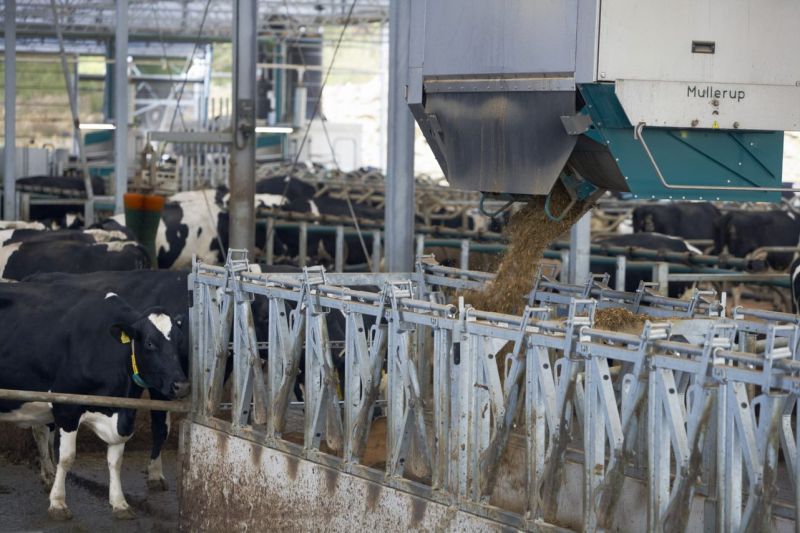
A new £1.3m dairy centre has been launched in the South West to offer an innovative environment for development within the industry.
The South West Dairy Development Centre in Somerset aims to offer a fresh vision for sustainable UK milk production.
The £1.36 million, 180-cow dairy unit provides development, testing and demonstration of new technologies and techniques to support high health and welfare milk production.
The centre combines building design and management systems to create an efficient, low cost dairy system, with the capital cost of developing the dairy from scratch amounting to less that £8,000 per cow.
The centre’s remit is to offer a platform for industry to trial and review new ideas for the benefit of dairy farmers throughout the UK.
Duncan Forbes, Agri-EPI project manager for the new centre said: “Our mantra here is, ‘measure it to manage it’. Sensor technology is being used to gather data to enable us to maximise precision in many aspects of feeding, production, health and welfare across the farm: indoors and outdoors, by satellite, and on and inside the cows. The automation of many processes within the dairy releases skilled staff to devote more of their time to cow health and welfare.”
Precision grazing
Precision grazing is at the top of the centre’s agenda. While the number of robotic dairies in the UK continues to increase, and it is recognised that grass can be a least-cost feed for dairy herds, successful grazing has been difficult to implement on many robotic units.
The new centre aims to tackle this by using emerging technology such as hyperspectral imaging and satellite data to monitor and predict grass growth in its surrounding paddocks, allowing the herd access to up to three fresh areas of grazing per day.
A network of tracks and flexible paddocks encourage cow flow between the between the paddocks and the robotic milkers.
The dairy is one of only a handful in the UK to uses GEA Monobox robotic milkers which gather data about each cow’s milk yield and quality while optimising udder health.
'Feed kitchen'
An automated ‘feed kitchen’ allows accurate amounts of fresh feed to be delivered up to 15 times per day.
The automated rail mounted feed dispenser is positioned high up within the building, reducing disruption to the cows. The building is designed to protect the feed itself from wildlife and the weather.
The cattle housing design reflects the natural cow environment while providing automated protection from changing weather conditions. It includes enrichment elements, such as rotary brushes and state-of-the-art lighting.
A number of trials are already underway or planned for the centre. It is one of three UK ‘testbeds’ for the 5G RuralFirst project, an ambitious connectivity project.
Led by Cisco and involving a consortium of partners, it aims to demonstrate how connectivity will benefit rural communities and business across the UK.
A number of technologies utilising 5G data are to be trialled, including cow collars, monitoring health and welfare, digital systems to monitor cow fertility through milk analysis and, in the future, a 'virtual vet' system connecting stockpeople to a vet using augmented reality.
The centre has been established by Agri-EPI using funding from Innovate UK and support from industry partners.
